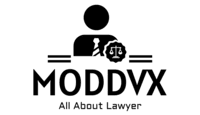Understanding Your Rights: How an Employment Lawyer Can Help You Navigate Workplace Issues
Navigating the complex landscape of workplace issues can be challenging for employees. Understanding your rights and knowing when to seek professional help can make a significant difference in resolving disputes and ensuring fair treatment. This is where an employment lawyer comes in. These legal professionals specialize in employment law and are equipped to help you understand your rights, advise you on the best course of action, and represent you in legal matters. Here’s a detailed look at how an employment lawyer can assist you in various workplace scenarios.
1. Clarifying Employment Contracts and Agreements
Employment lawyers can review your employment contracts, non-compete agreements, and other workplace documents to ensure they are fair and legally sound. They can explain complex legal terms and conditions, helping you understand your obligations and rights. If you’re negotiating a contract, an employment lawyer can advocate for better terms on your behalf.
2. Addressing Discrimination and Harassment
Workplace discrimination and harassment are serious issues that can affect your mental and physical well-being. If you experience discrimination based on race, gender, age, religion, disability, or any other protected characteristic, an employment lawyer can help you file a complaint with the Equal Employment Opportunity Commission (EEOC) or your state’s equivalent. They can also represent you in court if your case escalates.
3. Handling Wrongful Termination
If you believe you’ve been wrongfully terminated, an employment lawyer can evaluate your case to determine if your firing violated any employment laws or contract terms. They can guide you through the process of filing a wrongful termination claim and represent you in negotiations or litigation to seek compensation or reinstatement.
4. Wage and Hour Disputes
Issues related to unpaid wages, overtime pay, and other wage-related disputes are common in many workplaces. An employment lawyer can help you understand the Fair Labor Standards Act (FLSA) and other relevant laws, ensuring you receive the compensation you’re entitled to. They can assist in filing claims for unpaid wages and represent you in any subsequent legal proceedings.
5. Navigating Leave Policies and Benefits
Employment lawyers are well-versed in laws like the Family and Medical Leave Act (FMLA) and other state-specific leave policies. If you’re having trouble getting approved for leave or if you’re facing retaliation for taking leave, an employment lawyer can help you assert your rights and navigate the complexities of leave policies.
6. Dealing with Retaliation and Whistleblower Protection
Retaliation against employees who report illegal activities, safety violations, or unethical behavior is prohibited by law. If you’re facing retaliation for being a whistleblower, an employment lawyer can help you file a retaliation claim and seek protection under whistleblower laws. They can also guide you on the safest way to report issues and ensure your rights are protected throughout the process.
7. Mediating and Settling Disputes
Not all workplace issues need to go to court. Employment lawyers can help mediate disputes between you and your employer, aiming for a fair and amicable resolution. They can negotiate settlements that compensate you fairly without the need for protracted legal battles.
8. Providing Representation in Litigation
If your case does go to court, having an experienced employment lawyer on your side is crucial. They can represent you in court, presenting evidence, making legal arguments, and advocating for your rights and interests. Their expertise can significantly increase your chances of a favorable outcome.
FAQS
1. What does an employment lawyer do?
Answer: An employment lawyer specializes in employment law and assists employees with various workplace issues, including contract reviews, discrimination and harassment claims, wrongful termination, wage disputes, leave policies, retaliation claims, mediation, and litigation.
2. When should I consult an employment lawyer?
Answer: You should consult an employment lawyer if you’re facing any workplace issues such as unfair treatment, discrimination, harassment, wrongful termination, wage disputes, problems with leave policies, or retaliation for whistleblowing. It’s also beneficial to consult an employment lawyer before signing any employment-related contracts or agreements.
3. How can an employment lawyer help with discrimination and harassment issues?
Answer: An employment lawyer can help you understand your rights, gather evidence, and file a complaint with the Equal Employment Opportunity Commission (EEOC) or your state’s equivalent. They can represent you in court if your case goes to trial, aiming to secure fair compensation and ensure that your rights are protected.
4. What should I do if I believe I’ve been wrongfully terminated?
Answer: If you believe you’ve been wrongfully terminated, consult an employment lawyer immediately. They can review the circumstances of your termination, determine if any laws or contract terms were violated, and guide you through filing a wrongful termination claim. They can also represent you in negotiations or litigation.
5. How do employment lawyers handle wage and hour disputes?
Answer: Employment lawyers can help you understand relevant laws, such as the Fair Labor Standards Act (FLSA), and determine if you’re entitled to unpaid wages or overtime pay. They can assist in filing claims for unpaid wages and represent you in any subsequent legal proceedings to ensure you receive the compensation you deserve.
6. Can an employment lawyer help me with leave policies and benefits?
Answer: Yes, an employment lawyer can help you navigate leave policies and benefits, such as those covered under the Family and Medical Leave Act (FMLA). They can assist you in applying for leave, addressing denials, and protecting you from retaliation for taking leave.
7. What should I do if I’m experiencing retaliation at work?
Answer: If you’re experiencing retaliation for reporting illegal activities, safety violations, or unethical behavior, consult an employment lawyer. They can help you file a retaliation claim, guide you on reporting issues safely, and ensure your rights are protected under whistleblower laws.
8. How can an employment lawyer assist with contract negotiations?
Answer: An employment lawyer can review and explain employment contracts, non-compete agreements, and other workplace documents. They can negotiate terms on your behalf to ensure the contracts are fair and protect your interests.
9. What role does an employment lawyer play in mediating workplace disputes?
Answer: An employment lawyer can act as a mediator between you and your employer to resolve disputes amicably. They aim to reach a fair settlement that compensates you adequately without the need for litigation.
10. How does representation in litigation by an employment lawyer work?
Answer: If your case goes to court, an employment lawyer will represent you by presenting evidence, making legal arguments, and advocating for your rights and interests. Their expertise increases your chances of a favorable outcome in court.
11. What is the process for filing a complaint with the EEOC?
Answer: To file a complaint with the EEOC, you typically need to submit a charge of discrimination. An employment lawyer can help you gather evidence, complete the necessary paperwork, and ensure your complaint is filed within the required time frame. They can also guide you through any subsequent investigations or legal proceedings.
12. How can I find a good employment lawyer?
Answer: To find a good employment lawyer, seek recommendations from trusted sources, read online reviews, check their credentials and experience, and schedule consultations to discuss your case. Look for a lawyer who specializes in employment law and has a track record of successfully handling cases similar to yours.
Conclusion
Understanding your rights in the workplace is crucial for ensuring fair treatment and resolving disputes effectively. Employment lawyers play a vital role in helping employees navigate complex legal issues, from contract negotiations to wrongful termination and discrimination claims. If you’re facing a workplace issue, consulting with an employment lawyer can provide you with the guidance, support, and representation you need to protect your rights and achieve a fair resolution.



















